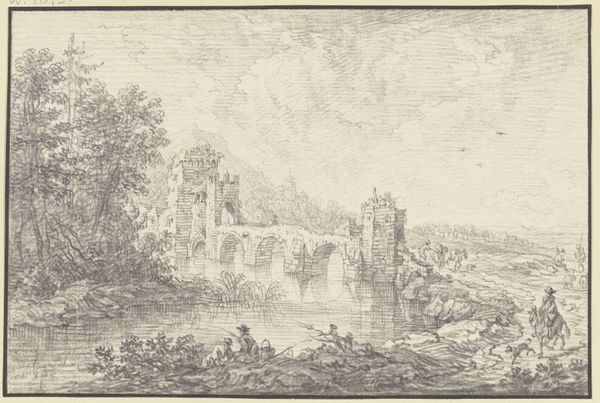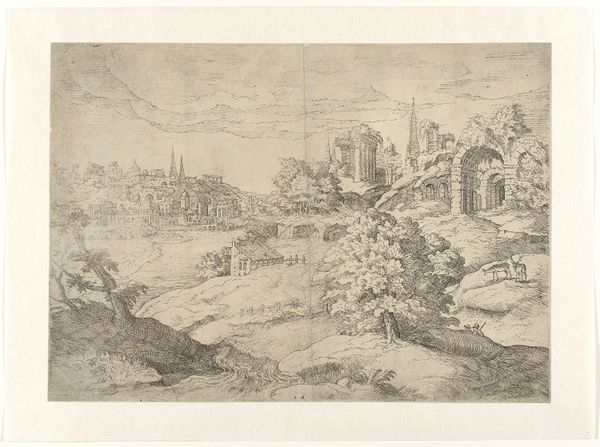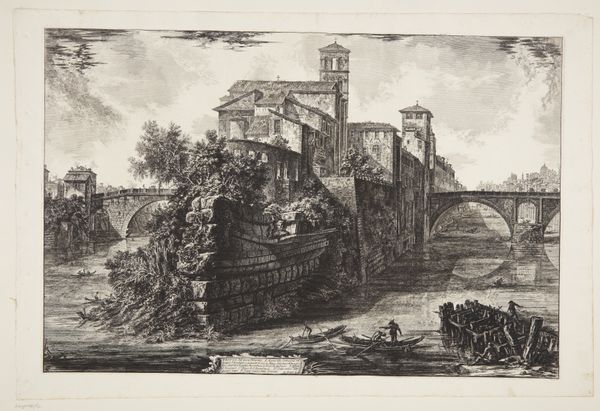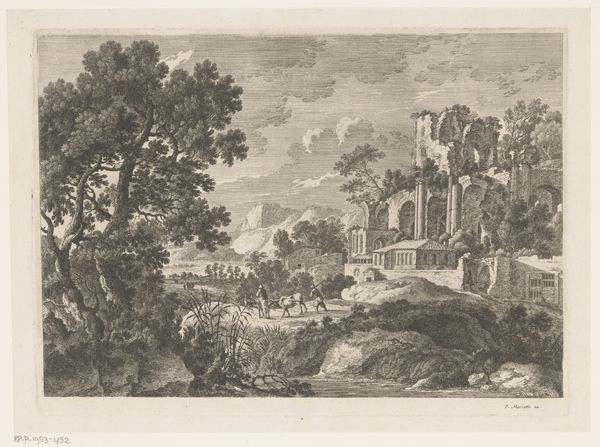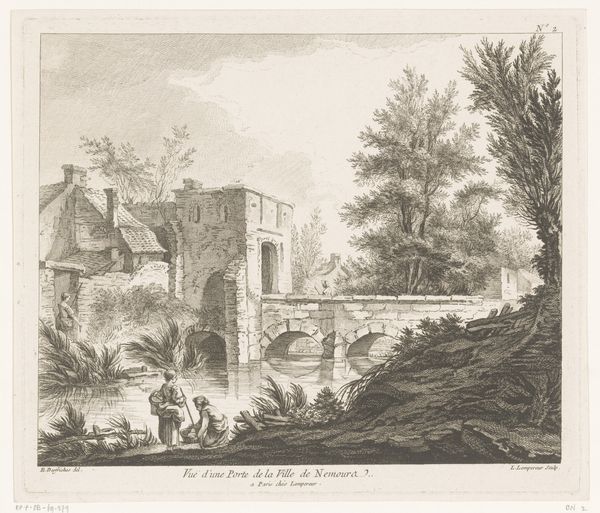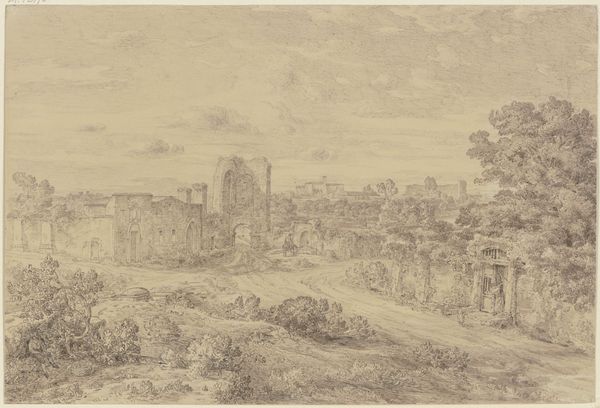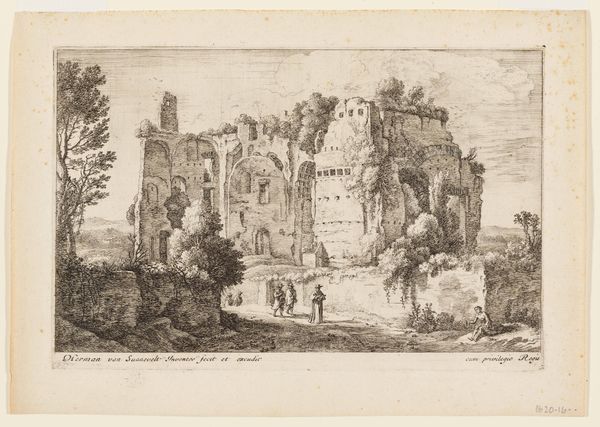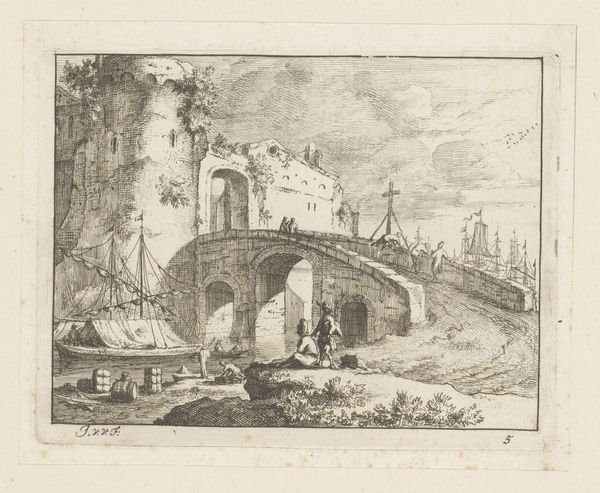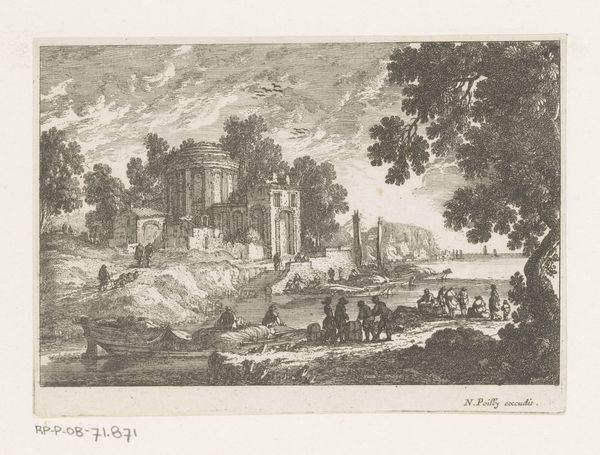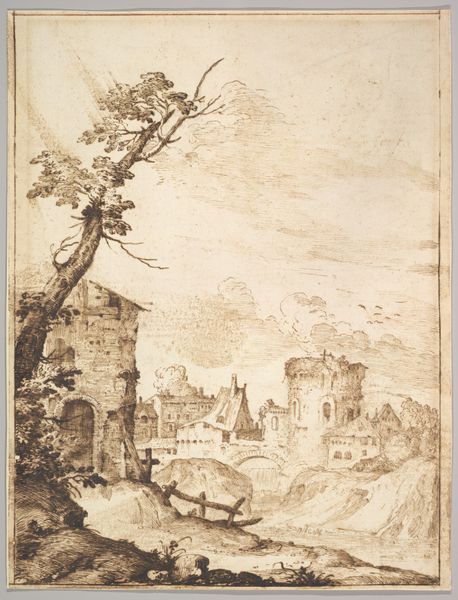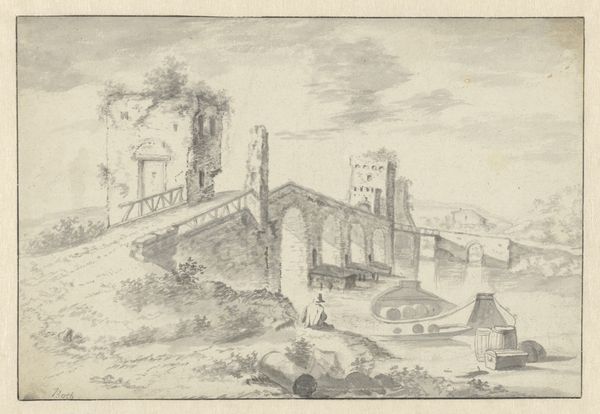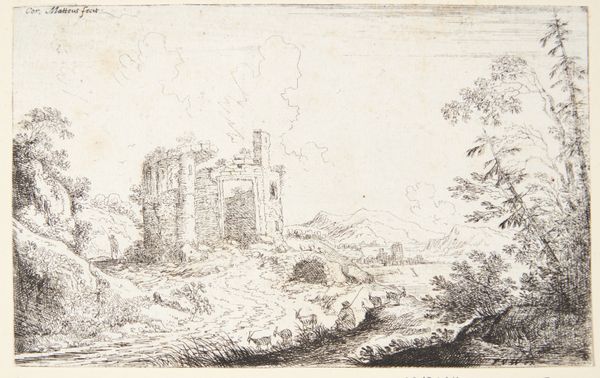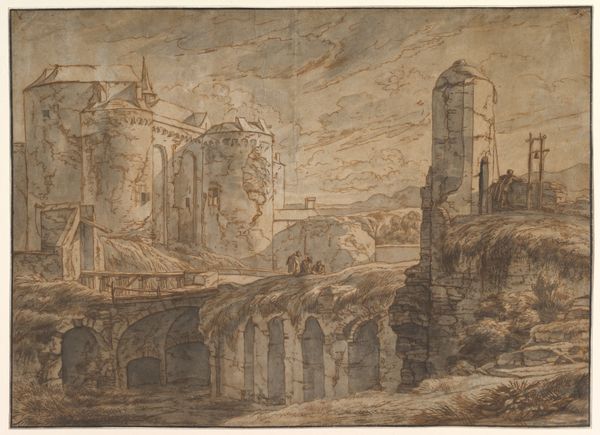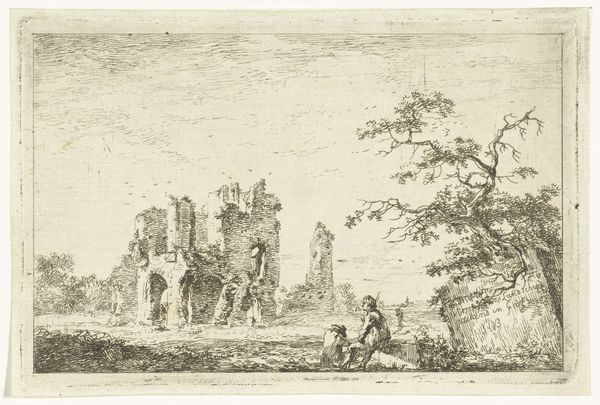
print, etching
#
baroque
#
ink painting
# print
#
etching
#
landscape
#
etching
Dimensions: height 206 mm, width 337 mm
Copyright: Rijks Museum: Open Domain
Editor: So, here we have Isaac de Moucheron’s "Poort te Tivoli," made sometime between 1677 and 1744. It's an etching, so quite delicate. The scene feels... wistful, almost dreamlike, a kind of fading memory of a place. What do you see in this work, especially regarding the symbolism embedded within? Curator: The wistfulness you describe is apt. Notice the ruinous quality of the architecture juxtaposed with the serene landscape. Ruins, symbolically, aren't simply about decay. They evoke the passage of time, the rise and fall of civilizations, a poignant meditation on human endeavors. Editor: That's interesting. The figures on the bridge, do they add to that symbolism? Curator: Absolutely. Consider them wayfarers, possibly travelers on a pilgrimage. Bridges are potent symbols themselves, connecting disparate spaces and, by extension, different states of being. They might represent a transition, perhaps a journey toward spiritual enlightenment, passing from one phase to another. Editor: So, the figures and the landscape interact... Curator: Precisely. They interact to enhance the scene. The distant mountains suggest something transcendent, eternal perhaps. Etchings are particularly interesting; as the art work is copied the symbol has a capacity to enter more aspects of visual life than perhaps paint would allow for in this time. Does that enhance your interpretation? Editor: It does. I hadn't really considered that it being a print might have broadened its cultural reach and impacted the longevity of those symbols. Thanks for helping me see the layered meanings at play here. Curator: My pleasure. The more we delve into the visual language, the richer our understanding of cultural memory becomes.
Comments
No comments
Be the first to comment and join the conversation on the ultimate creative platform.
